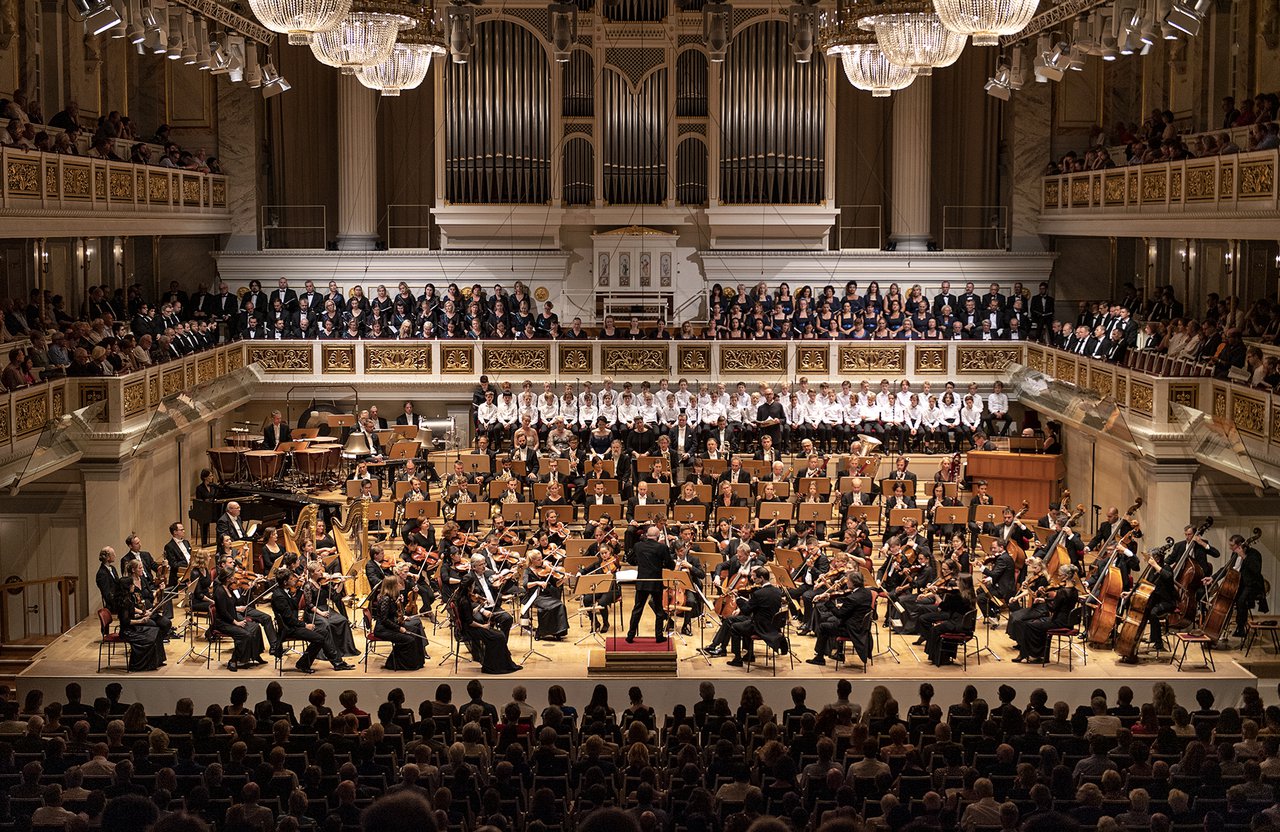11.00 Uhr
cappella academica, Christiane Silber

“
Gustav Mahler's second symphony touches on deep human questions: Why do we live, does everything end with death, what could come afterwards?
Like no other composer, Mahler's entire oeuvre revolves around mourning and consolation, death and life. For our dramaturge Andreas Hitscher, his symphonies demand not only listening but "unreserved co-experience. That makes them a world view to an incomparable degree, makes their performance sometimes more of a mystical edification than a concert experience."
And what characterises Mahler's world view? "Out of a pantheistic philosophy of life, he identified with every creature, saw his neighbour in every animal, plant and stone. His religiosity always confronted him with the basic existential questions." A view of our world and questions that are at least as pressing for answers today as they were in the fin de siècle.
178 performers including principal conductor Christoph Eschenbach, choir and soloists Marisol Montalvo (soprano) and Mihoko Fujimura (alto) made the official count of the orchestra office this week for Mahler's "Resurrection Symphony". The 105 orchestra members on stage are joined by a ten-piece remote orchestra of horns, trumpets and percussion. This puts the Second in the top group, but not yet the most opulently scored work by Gustav Mahler.
Right at the top is the Eighth, with the evocative, if a little lofty, nickname "Symphony of a Thousand". Christoph Eschenbach has rehearsed it with the Konzerthausorchester for the opening of the 2019 season. It's not hard to see in the photo: The stage was no less full than the hall! Mahler's Third, which is on the programme with Iván Fischer in December, also narrowly passes the Second. But: in none of them are there four harps as in the Second!
The 232-page original score of the "Resurrection Symphony" was bought by an anonymous bidder in 2016 for 4.5 million pounds, at that time around 5.3 million euros. This made it the most expensive music manuscript ever. The new owner was not the first person to be obsessed with this work: the previous owner was the New York businessman Gilbert Kaplan, who died the same year and had bought the score in the 1980s. He learned conducting specifically for Mahler's Second and performed it over 100 times in three decades with major symphony orchestras around the world. Expanding his repertoire, however, was of little interest to him.
Actually, they swim through one of the songs that belong to Mahler's cycle "Des Knaben Wunderhorn": Carp and pike, eels and sturgeon, stockfish, crabs and even "turtles" ("otherwise slow messengers") come hurrying up so as not to miss the sermon of St. Anthony of Padua. He, frustrated, prefers to speak to them rather than to the unteachable humans. But the underwater world turns out to be no better: despite the sermon, everything remains the same for the fish, too.
In the third movement of the symphony, the fish society can also be heard scurrying about very clearly, but purely instrumentally without the whimsical text of the Wunderhorn song. And as is often the case with Mahler, everything is on the brink, the "horror of a constantly moving, never resting, never comprehensible gear of life" lurks in the cheerful and folksy, as the composer described in a letter.
In childlike, intimate faith, the contralto sings of the "little light" that God will send her to light her way into eternity, where man comes from and wants to go again. But Mahler would not be Mahler if this "Urlicht" from "Des Knaben Wunderhorn" removed all doubt. It is rather "the soul's questioning and wrestling about God and about its own divine existence beyond this life", he is supposed to have said. Only in the last movement, after the Last Judgement has swept through the orchestra, does the soprano bring certainty with a redemptive "Aufersteh'n!
In any case, dramaturg Andreas Hitscher sees in this monumental work "a contribution to the requiem literature that is as significant as it is boundary-breaking: Mahler's Second is the requiem mass of the turn of the century!"
Photo: Martin Walz